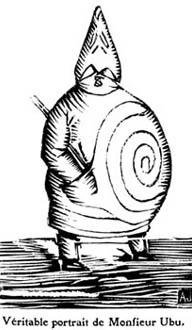"The Invention of Perspective" by G. L. Ford could be an inscription on tapered candles. Something ritualistic in the cream-colored paper space, the line breaks that give solemn pause to
disclosures
of thought.
In language inspired by 15th century treatises on painting technique, Ford uses short, weighty phrases to evoke the sublime. The form of lines and stanzas spaces out and scatters the otherwise straightforward syntax of didactic prose. Excessive punctuation exaggerates the formal tone: "One learns to cleave:/ever closer to nature;/ever farther from the horrid and obscure."
This reader gets the impression that many of these phrases are direct quotes, thought-provoking excerpts that would have been buried within the dense mass of the original works, Leon Battista Alberti's "On Painting" [1435] and Pieto della Francesca's "On Perspective in Painting" [1474]. Ford has carefully teased them out to make them available to us, incorporated them into a philosophy and a setting of his own.
For all of its medieval religious overtones, this work is subtly in praise of the material world. The speaker is a master painter, after all, not a priest. "From hearing the poets,/you may learn to paint gods," but "never forget that your eye is flesh,/and flesh the eye's meaning and sum." Just as the body suggests the soul, though the two are separate, the whole of the natural world suggests the divine will of creation. The reader stands in as pupil, led to glimpse a subdued, vocalized version of this transcendental meditation, which itself must be translated by the hand rather than the mind.
As a work of, by, and for art, "The Invention of Perspective" is both cautionary and coldly inspirational. "We have all been struck by lightening," the master tells us; also: "Impossibility/is no excuse."
As this is a poem by a relatively young poet and not, in fact, the words of a maestro speaking directly to an apprentice, a note of distance, if not irony, can be inferred in and around the piece's wise words, patronizing tone. The author is in fact the student, and the actualization of the treatise remains an open question to author as well as audience. We are given these insights, but it is up to us to use them or discard them as we will.
